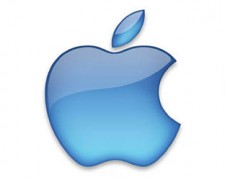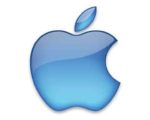 Apple said initial supplies of its new iPhone 5 sold out, achieving a first-weekend sales record but failing to meet demand. The total of more than five million units purchased during the first three days in stores compares with four million iPhone 4S units sold during its premiere weekend last year. Some analysts had expected Apple to sell 8 million or more of the new smartphones over the weekend.
Apple said initial supplies of its new iPhone 5 sold out, achieving a first-weekend sales record but failing to meet demand. The total of more than five million units purchased during the first three days in stores compares with four million iPhone 4S units sold during its premiere weekend last year. Some analysts had expected Apple to sell 8 million or more of the new smartphones over the weekend.
The company also said on 9/24 that users of more than 100 million Apple mobile devices had updated their mobile operating systems to the new iOS 6.
Apple said the new iPhone, now available in the U.S., Australia, Canada, France, Germany, Hong Kong, Japan, Singapore and the U.K., will be made available in 22 more countries on 9/28 and in more than 100 countries by the end of the year.
“Demand for iPhone 5 has been incredible, and we are working hard to get an iPhone 5 into the hands of every customer who wants one as quickly as possible,” said Tim Cook, Apple’s CEO, in prepared remarks.
Some analysts argued that expectations had become overheated, and noted that the five million-unit figure does not include preordered iPhones that Apple has shipped to customers but have not yet been signed for. Others pointed out Apple frequently suffers shortages following launches of new products, reported The Wall Street Journal.
But the announcement appeared to be the first time Apple said it had entirely sold out of a new iPhone, and raised questions as to why the company had not been able to supply more of the new model. Perhaps it had to do with ongoing problems with the Foxconn plant in China.
WSJ said an Apple spokesman declined to comment, but analysts have speculated the company may be encountering shortages of some components, including displays or some chips used in the new handset.
Another theory is that Apple may have reached a theoretical limit to how many products can be produced in a specific window of time. Tom Dinges, an analyst at IHS iSuppli, said historically, Apple began production of new iPhones in mid-August, a little more than a month from when it’s released. But, he said, the company may have shortened that production schedule to control information leaks that could come from suppliers.
“For the major opening weekend, we’re close to the limit,” Dinges told the paper. “Unless they’re willing to widen the manufacturing window, maybe we have seen” the limit for how many units Apple can deliver without more production lines.
The iPhone 5 is the first Apple smartphone to run on faster long-term evolution wireless networks, a feature that is expected to benefit carriers because the next-generation wireless technology they are still building out is more profitable and expected to drive lucrative increases in data usage.





